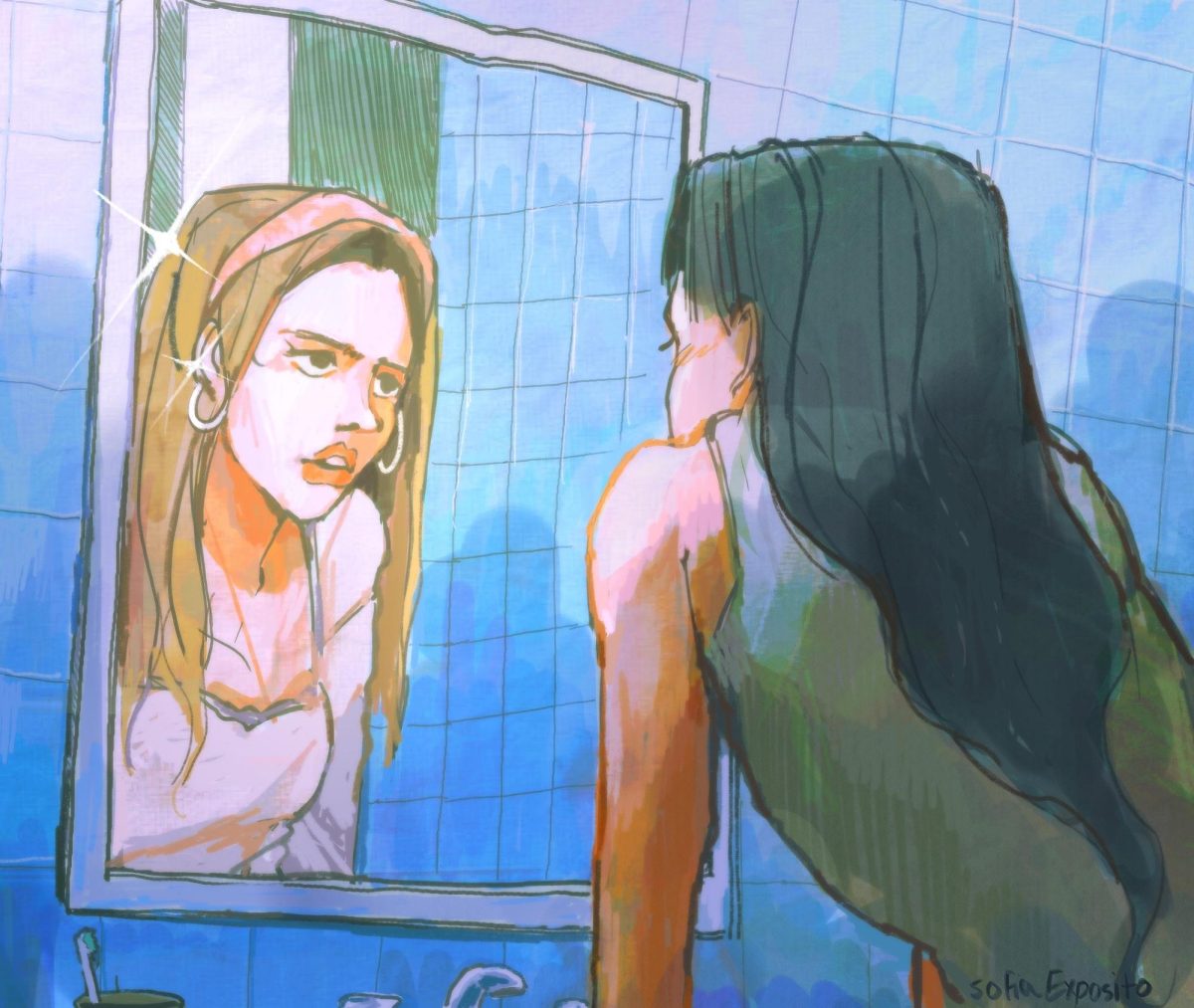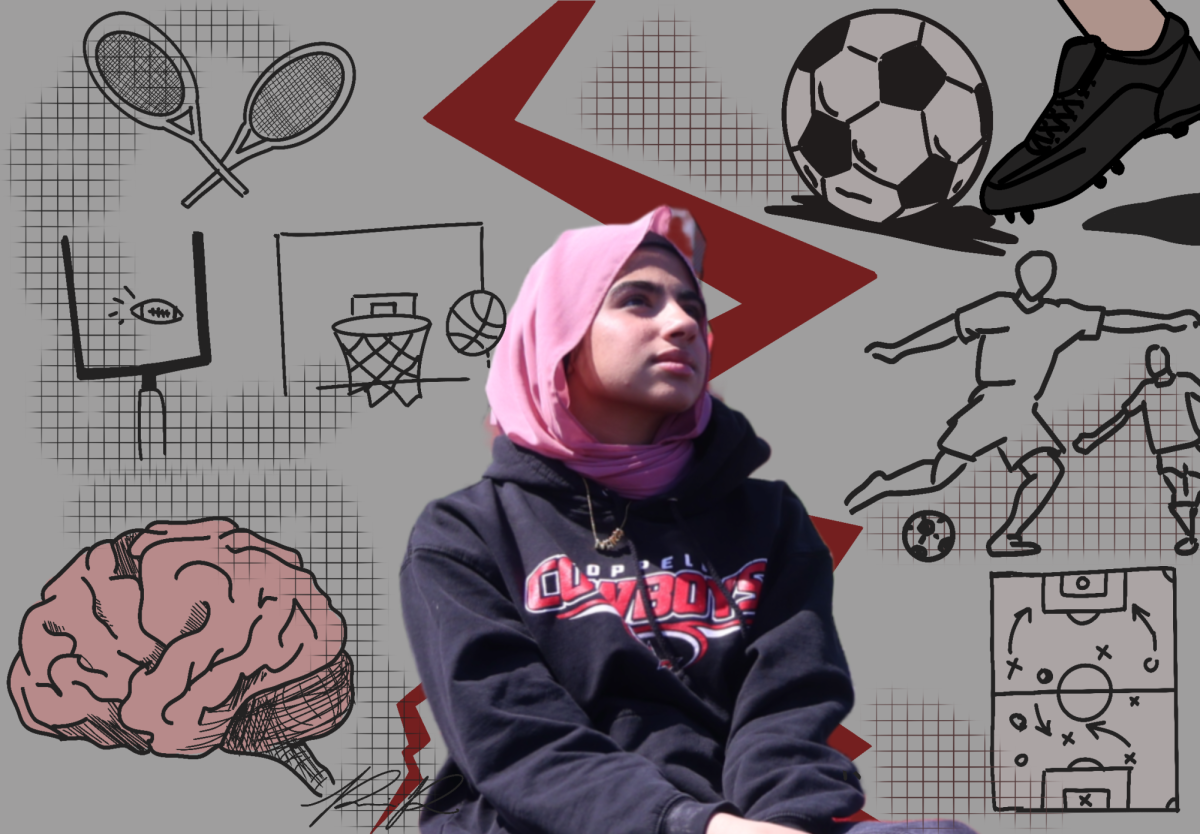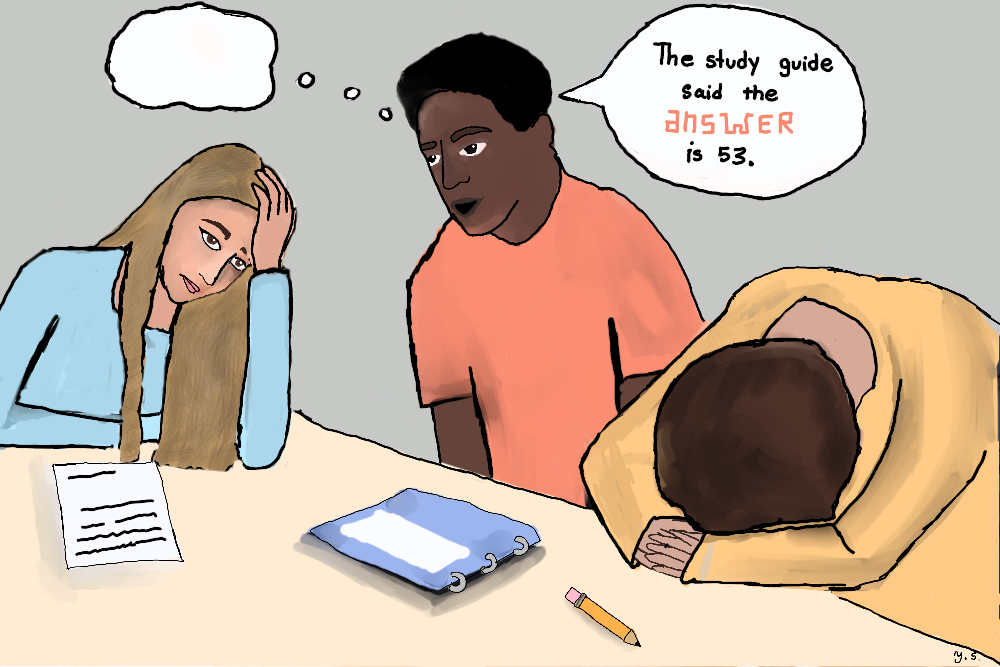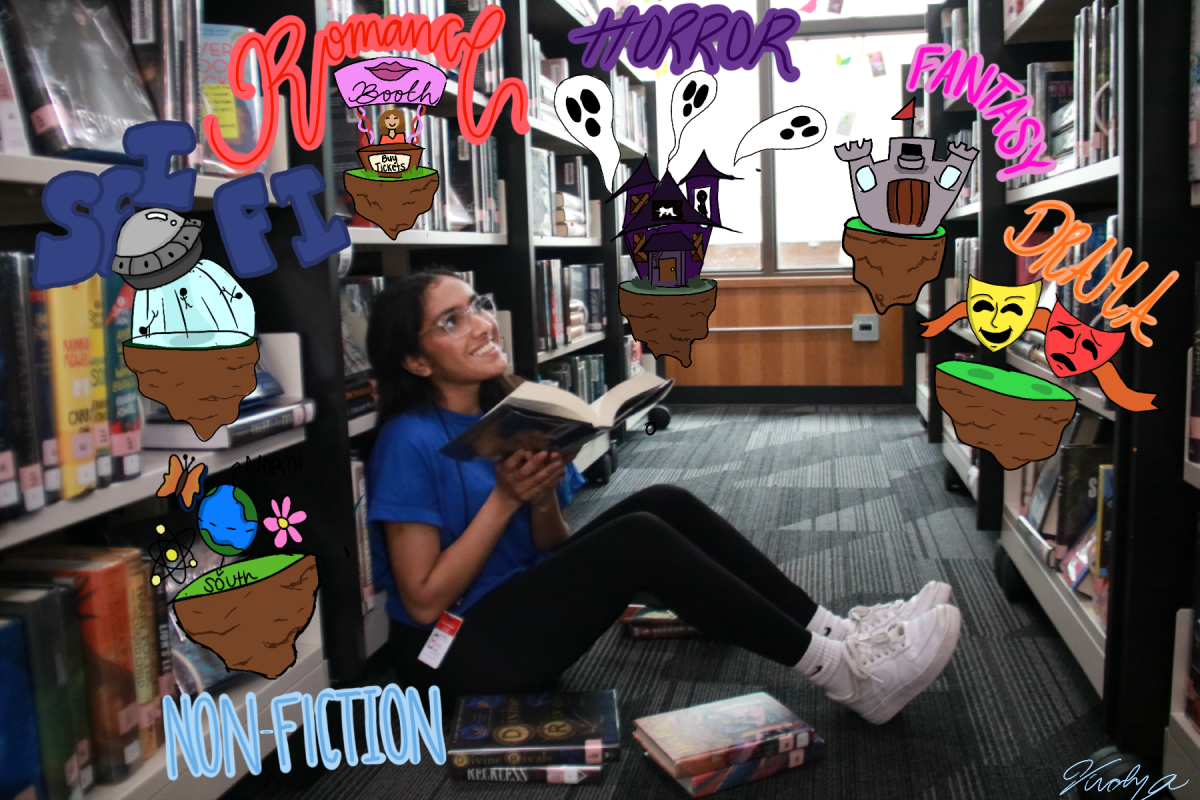As human beings, we tend to believe we possess complete authority over our own minds. Unfortunately, the brain is a stage for complex processes and interaction, so this theory can be disproven in the most rudimentary of scenarios.
Perhaps it was when you were 10 and heading over to the checkout counter at Walmart, on your way catching a glimpse of the text “Ariana Grande” emblazoned over the cover of a glossy magazine. You could say that it took a mere 10 seconds out of your day. However, I’d tell you to switch the “seconds” to years and “your day” to “your life.”
Many adolescents seek guidance from celebrities that replicate certain aspects of their lives. The teenage years are quite literally the embodiment of the phrase “not quite,” where we shape our identities for a future full of desire masked with a constant effort not to be hindered by the familiarity of our youth.
A key facet of my identity is rooted in a slight existential crisis I experienced when I was 13. Talking about office affairs and schoolwork in my household allowed me to uncover a cycle: my grandparents worked, so my parents could work, so I could work, so my children could work and so on. Everything in between didn’t matter.
Before I spiraled into an abyss of questions yet to be answered by the world’s designated geniuses, I discovered resolve in the brevity of Lana Del Rey’s album “Born to Die.” She turned what I thought to be an unoriginal sequence of events, transforming it into a fleeting expression of art. As you would expect, I began to practically worship her.
Although it is apparent that I too am a victim of the celebrity influence phenomenon, that does not justify its effects on teenagers.
As Alexander Pope once said, “To err is human,” and even celebrities cannot escape that. To me, this only becomes a problem when accountability comes into play. When I can’t get away with a failed test score at home but a person with insurmountable influence faces no backlash for smoking, heavy drinking or spreading misinformation, these practices are indirectly encouraging the observer.
With the presidential election just a few weeks away, addressing the issue of celebrity interference becomes increasingly more important. While people have already formed certain biases and beliefs, endorsements by popular faces in the media are important to increase the desire to vote, especially for those less politically involved.
Following Thursday’s presidential debate between Vice President Kamala Harris and former President Donald Trump, Taylor Swift took to Instagram to make her support for Harris public. According to ABC News, 62% of Swift’s fan base already aligns themselves with Democratic views, meaning her post is unlikely to sway many.
Yet, her post brings forward a new demographic to the voting game: the younger generation. Typically holding a low turnout in polls, Swifties can now channel their vague interest in politics towards action.
While Swift’s post bodes well for Democrats, celebrity endorsements through major media platforms can act as a shortcut to acquiring adequate information. People rely more on their trust in the reputation of a celebrity than their own perception to make critical choices.
A simple way to improve your judgment is by establishing separate values to prove yourself an unbiased critic when it comes to your idols.
Before you decide to enter that phase where Ariana Grande’s success becomes a way to guarantee your own, recognize that you, yourself, possess the autonomy required to dictate your life.












Nyah Rama • Sep 17, 2024 at 10:21 pm
I absolutely loved this Riya! It made me giggle.